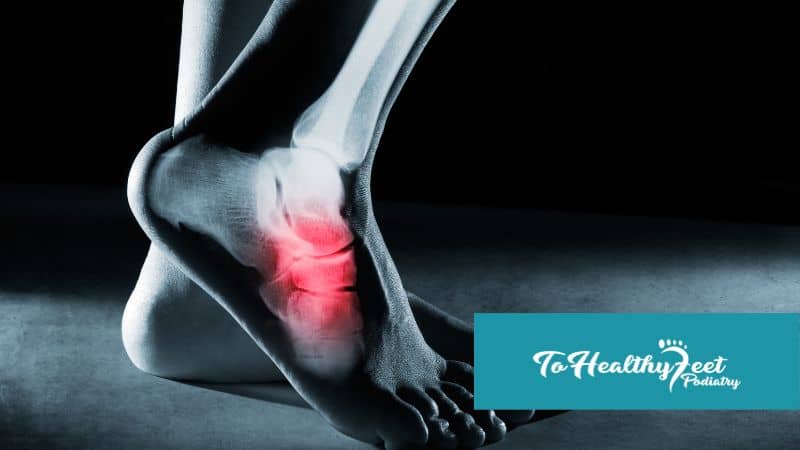Suffering from a foot fracture can be a daunting experience. The pain, inconvenience, and the uncertainty of the healing process can be overwhelming. At To Healthy Feet Podiatry in NYC, we understand how crucial proper care and rehabilitation are to your recovery journey. This blog aims to provide you with a comprehensive overview of what to expect after a foot fracture, helping you navigate through this challenging time with clarity and confidence.
Immediate Post-Injury Care
The immediate aftermath of a foot fracture requires prompt attention and specialized care. Upon diagnosis, your healthcare provider may recommend immobilization using a cast, brace, or splint to protect the injured foot and promote healing. It's essential to follow your doctor's instructions regarding weight-bearing restrictions, elevation of the foot, and proper use of assistive devices like crutches or a walking boot.
During this phase, focus on pain management through prescribed medications, ice therapy to reduce swelling, and gentle exercises to maintain joint mobility in unaffected areas. Your healthcare team will monitor your progress closely and may schedule follow-up appointments to assess healing and adjust treatment as needed.
Gradual Return to Weight-Bearing Activities
As the initial pain and swelling subside, your rehabilitation journey will progress towards a gradual return to weight-bearing activities. Your healthcare provider or physical therapist will guide you through a structured rehabilitation program tailored to your specific injury, fitness level, and recovery goals.
The rehabilitation process may include:
- Range-of-motion exercises to improve flexibility and prevent stiffness in the foot and ankle.
- Strengthening exercises targeting the muscles of the lower leg, foot, and ankle to restore stability and support.
- Balance and proprioception training to enhance coordination and reduce the risk of future injuries.
- Gait training to relearn proper walking mechanics and ensure a smooth transition from non-weight-bearing to full weight-bearing activities.
- Functional exercises that mimic daily activities to rebuild confidence and functionality in daily life.
Consistency and dedication to your rehabilitation program are key to achieving optimal outcomes and minimizing the risk of complications or recurrent injuries.
Long-Term Maintenance and Injury Prevention
Recovering from a foot fracture extends beyond the initial healing phase. Long-term maintenance and injury prevention strategies play a crucial role in preserving foot health and minimizing the risk of future fractures. Your healthcare team will provide guidance on:
- Footwear selection: Choosing supportive footwear that accommodates your foot shape, provides adequate cushioning and stability, and promotes proper biomechanics.
- Orthotic devices: Custom orthotics or shoe inserts may be recommended to address foot alignment issues, correct gait abnormalities, and reduce stress on vulnerable areas.
- Activity modification: Understanding your activity level and making appropriate modifications to reduce high-impact activities, incorporate cross-training, and prioritize rest and recovery.
- Regular monitoring: Periodic check-ups with your healthcare provider to assess foot health, address any emerging concerns, and modify treatment plans as needed.
By adopting these proactive measures and maintaining a healthy lifestyle, you can safeguard your foot against future injuries and enjoy long-term mobility and comfort.
Navigating the recovery and rehabilitation process after a foot fracture requires patience, perseverance, and expert guidance. To Healthy Feet Podiatry is here to support you every step of the way, from initial diagnosis to long-term maintenance. By understanding what to expect and actively participating in your recovery journey, you can achieve a successful outcome and regain confidence in your foot health.
If you or a loved one is recovering from a foot fracture, don't hesitate to reach out to us for personalized care and treatment plans. Our team of experienced professionals is committed to helping you regain mobility, restore function, and enjoy a pain-free lifestyle. Take the first step towards a healthier, happier future by booking an appointment today at one of our 4 convenient locations: Grand Central, Downtown Manhattan, Times Square, and Upper East Side!
Written on behalf of To Healthy Feet Podiatry.
FAQs
Q: What is the typical recovery time for a foot fracture?
A: The recovery time for a foot fracture varies depending on the severity and type of fracture. Generally, it can take anywhere from 6 to 12 weeks for the bone to heal completely.
Q: What exercises can I do to speed up the healing process?
A: Gentle range-of-motion exercises, such as ankle circles and toe flexion/extension, can help maintain joint mobility. Once cleared by your doctor or physical therapist, you may also start with light strengthening exercises for the foot and lower leg.
Q: When should I start physical therapy after a foot fracture?
A: Physical therapy typically starts once the initial healing phase is complete and your doctor clears you for weight-bearing activities. This usually occurs around 4 to 6 weeks post-injury.




